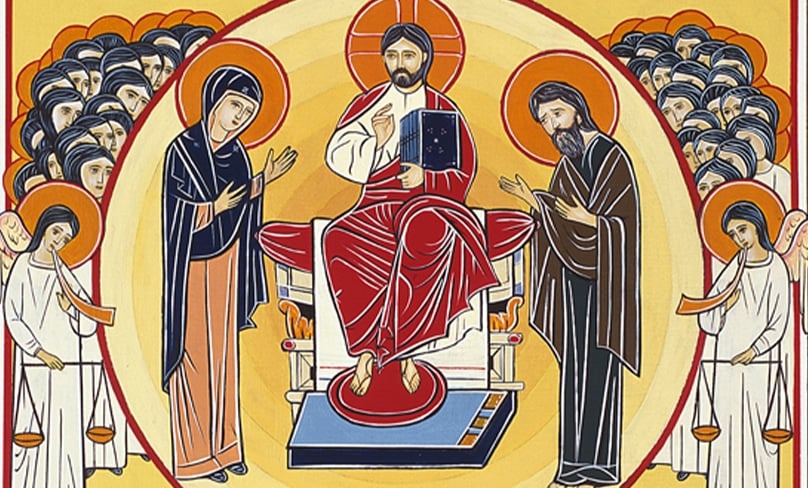
By Salwa Elias
“It is therefore a holy and wholesome thought to pray for the dead, that they may be loosed from sins.” (2 Maccabees 12:46)
Praying for the dead isn’t only set aside for the month of November or during funerals alone, for we must remember them always in prayer as we call upon the mercy of God.
In this third week of the Maronite Liturgy’s “three weeks of Commemoration,” we dedicate this Sunday to the faithful departed and recall the souls of all who have died, especially the most forgotten souls.
The Maronites place much emphasis on praying for the departed. In fact, we practice certain protocols that help the grieving members as well as the departed souls.
When a family member dies, it is customary for the family to make a public announcement indicating a place and time for receiving condolences before the funeral.
This tradition provides some form of consolation when grief is shared and acknowledged, and emotions are freely expressed.
Following the funeral there is a set time of 40 days that is considered a time of mourning which concludes with a Memorial Mass (Geneze) and followed again by the one-year Mass for their soul.
In this blessed week of the faithful departed we remember all souls in hope and prayer for their eternal salvation, as these souls can no longer pray or offer penance for themselves.
Prayer has always been my solace, my “go-to place” especially when life isn’t going my way and I need to find purpose and direction in my life.
But that’s not the only time I turn to prayer, for it has become my daily bread—the irreplaceable nourishment I need each day to help me persevere in my vocation as a disciple and worker in the Lord’s vineyard.
Above any other reason, I need prayer to maintain my unique, personal and intimate relationship with God, wherein I speak to him and he speaks to me in the refuge of this divine intimacy.
Strangely enough, it was during my years as a florist in Rookwood Cemetery when my prayer developed into a deeper and more structured way of life. I felt a strong connection with the souls of the dead and could not stop praying for them throughout my day, especially in seeing the funeral cars driving past me so often.
I prayed for those who were grieving, that they may be strengthened in faith and hope, and I prayed for those who had passed into eternal life, that the Mercy of God had found a way into their hearts for reconciliation before their last breath.
This intention had already been included in my prayers for many years, even as a youngster, since I had prayed for my own father who died when I was two years old.
Every Christmas Eve I am reminded that my father was taken from us on this night, unexpectedly, in a car accident on the icy roads in the mountains of Lebanon.
More recently, the unexpected death of my stepfather and other dearly loved relatives, has aroused a great desire for prayers and Mass offerings on my part. I pray also for my babies who were miscarried, knowing that they now also pray for me from Heaven with the other Holy Innocents of God.
In our prayers, we implore God’s Mercy upon every soul that has ever passed, and that God may accept our sacrifices and offerings made on their behalf.
Praying for the dead is an act of mercy on our part, for they cannot pray for themselves, and this is why it’s so important for us to pray and to offer the Divine Liturgy for them.
St Gertrude’s prayer for the dead is a wonderful daily offering for the Holy Souls:
“Eternal Father, I offer You the Body, Blood, Soul, and Divinity, of Your Beloved Son, Our Lord Jesus Christ, in union with all the Masses offered today throughout the world, for the release of the holy souls in purgatory, especially the most forgotten souls and those within my own family.
“Eternal rest grant unto them O Lord, and let Your perpetual light shine upon them. May they rest in peace. Amen.”
Salwa Elias is a member of the Maronite Catholic Church and is the EWTN producer for Australia and New Zealand
